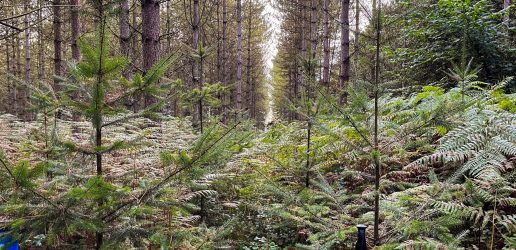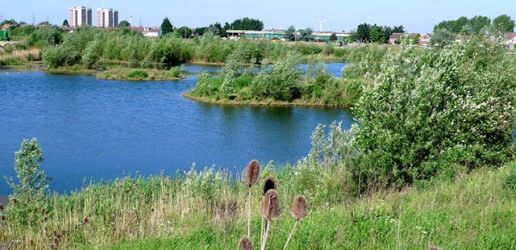
Forest Research has today published the final report containing the findings and recommendations of the independent review of the National Forest Inventory (NFI) and the Forest Research response to it.
The review, chaired by Peter Whitfield, was undertaken during 2020 and involved a public consultation, with responses from a range of customers and stakeholders.
As Peter Whitfield said in the report: “The NFI’s formally recognised role in delivering evidence and information on the current extent, location and nature of Britain’s woodlands, and of how they might change in the future under defined scenarios, is incredibly important. The information and data collected by the NFI on our growing stock in woodlands and forestry is seen as being essential in both supporting and evidencing policy and investment decisions and the NFI demonstrably has a high impact in its ability to do so.
“It is hoped that this report and its recommendations help the NFI to continue to deliver the extremely important work it carries out and to keep it dynamic and relevant to all of its current and potential users.”
In response Professor James Pendlebury, Chief Executive of Forest Research, said: “I very much welcome both the findings and the recommendations of the Independent Review Group and would like to thank both Peter Whitfield for chairing this piece of work and the group members, Lawrence Way, Mark Broadmeadow and Kari Karhonen, who offered their valuable time and expertise to undertake this review.
“Much has changed since the NFI was established in 2009, most notably the full devolution of forest policy; it is therefore reassuring that there remains clear support for the NFI as a key source of information about forests and woodlands across GB. However, I recognise the Group’s assessment that there is a need for the NFI to evolve and adapt if it is to continue to meet the diverse requirements of the current and future customer base.
I am happy to accept all 13 recommendations and have set a three-year timetable for them to be implemented in full. I am also committed to publishing our action plan and to report on progress annually.
I look forward to working with our key customers and stakeholders to continue to develop the NFI, to explore new funding opportunities for a revised core offering and to ensure that the service thrives and grows by acting on the feedback given and maturing the service and product offering in response to our users’ needs”.
Recent News
View All news
Underplanting extends range of coniferous tree species to diversify future commercial timber production
New Forest Research published in Forest Ecology and Management shows that underplanting could widen the range of conifers suitable for future UK timber production.

New land regeneration resources for creating green spaces on previously used land now available
The new resources bring together the latest learnings on land regeneration and climate change, and optimal soil thickness for planting on previously used land.

New national survey launched to strengthen plant pest and disease detection across UK horticulture
UK horticulture and landscaping businesses invited to take part in survey to strengthen non-native plant pest and disease detection and reporting.

Underplanting extends range of coniferous tree species to diversify future commercial timber production
New Forest Research published in Forest Ecology and Management shows that underplanting could widen the range of conifers suitable for future UK timber production.

New land regeneration resources for creating green spaces on previously used land now available
The new resources bring together the latest learnings on land regeneration and climate change, and optimal soil thickness for planting on previously used land.

New national survey launched to strengthen plant pest and disease detection across UK horticulture
UK horticulture and landscaping businesses invited to take part in survey to strengthen non-native plant pest and disease detection and reporting.
